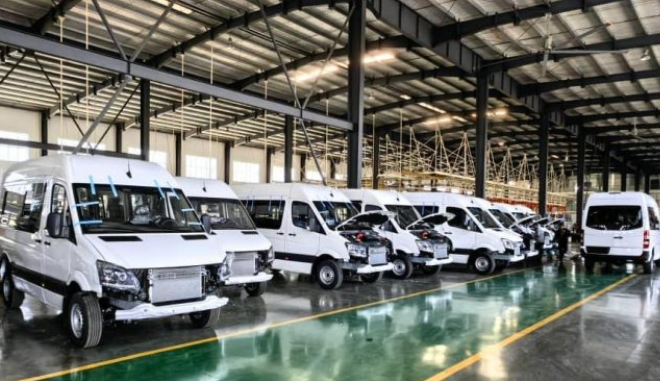

By switching to compressed natural gas, Nigeria will import less Premium Motor Spirit, or gasoline, on a yearly basis, according to a Tuesday announcement from the Federal Government.
Through the Presidential Compressed Natural Gas Initiative, it made this announcement and stated that the government’s goal was to convert one million gasoline and diesel vehicles to run on compressed natural gas (CNG).
This would save the nation roughly $4.4 billion yearly on PMS imports into Nigeria, according to Zayyan Tambari, Coordinator, Regulations, Compliance and Facilitation, PCNGI.
In addition to disclosing this, Tambari stated that the Federal Government aimed to replace 20% of the 50 million liters of gasoline that are currently consumed daily nationwide with compressed natural gas (CNG) during a presentation at the Co-Creation Session on Nigeria Gas Vehicle Monitoring System in Abuja.
Remember that the Federal Government started deploying CNG-powered buses and tricycles on Thursday, according to a report published by The PUNCH.
Our correspondent was informed by Bayo Onanuga, the President’s Special Advisor on Information and Strategy, that the Federal Government initiated the deployment to Ilorin, Kwara State.
In Ilorin, Kwara State, Governor Abdulrahman Abdulrazak gave a launch. The Ilorin launch served as a conversion and refueling station. Additionally, CNG tricycles and buses were unveiled. Starting in Ilorin, the CNG vehicle assemblers have started the rollout.
The inauguration began with the unveiling of some CNG buses and tricycles, followed by a conversion center. A date for Abuja has not been provided. However, the procedure commenced today,” Onanuga had clarified.
Meanwhile, the PCNGI announced during the co-creation session in Abuja on Tuesday that the development of infrastructure for the alternative fuel would cost roughly $890 million.
Additionally, the government would make sure that Nigeria benefits fully from its gas resources, stated Ekperikpe Ekpo, Minister of State for Petroleum Resources (Gas), who was represented by Abel Nsa, at the event.
We now need to start discussing the safety concerns associated with using CNG. We must educate ourselves and utilize particular resources and instruments that we have not previously used.
Remember what transpired between 2009 and 2001 with the invention of the cell phone under the administration of (former) President Olusegun Obasanjo? A lot will happen in terms of the economy. It will provide us with a plethora of tools to effectively utilize CNG,” he said.
According to Ogbugo Ukoha, Executive Director of the Nigerian Midstream and Downstream Petroleum Regulatory Authority (NMDPRA), Distribution System, Storage and Retailing Infrastructure, new filling stations will only be granted licenses if they are able to offer CNG dispensing points.
“Given the high cost of diesel, the authority is also engaging the stakeholders that would result in mandating fuel trucks and fleet owners as well as facilities to convert to the use of CNG,” he said.
Gas is more affordable, safer, cleaner, and more sustainable for the economy than crude oil, according to Michael Oluwagbemi, Project Director/Chief Executive, PCNGi. He also noted that Nigeria has an abundance of gas resources.
“We must ensure a smooth transition, identify and remove any bad actors, and ensure that everyone complies with the essential technical regulations while we go through this change.
“To accomplish this, we require the collaboration of every stakeholder in the ecosystem from the point of inspection or conversion to the point of use, from the manufacturing or importation of any component to the installation point, and we also require the implementation of a robust regulatory framework,” the PCNGI chief said.
On Thursday, Oluwagbemi informed our correspondent that a national program to convert mass transit buses to CNG had started.

“With great pleasure, the PCNGI announces the launch of the Nationwide Mass Transit Conversion Program. With the help of this massive project, mass transit vehicles will run on cleaner fuels, greatly lowering emissions and fostering environmental sustainability.
“The Federal Capital Territory, Lagos, Kwara, and the states of Rivers will be the starting points for the conversion program’s first phase. The National Union of Road Transport Workers, the Nigerian Association of Road Transport Owners, and the Road Transport Employers’ Association of Nigeria will collaborate to carry out this phase.
“Of the more than 120 designated conversion workshop sites, eight will be the first to roll out the program in order to guarantee its success. As we prepare to expand operations across 15 states over the next 45 days, these important union partners will have the chance to watch and assess the conversion process and offer insightful input, he said.

Be the first to comment